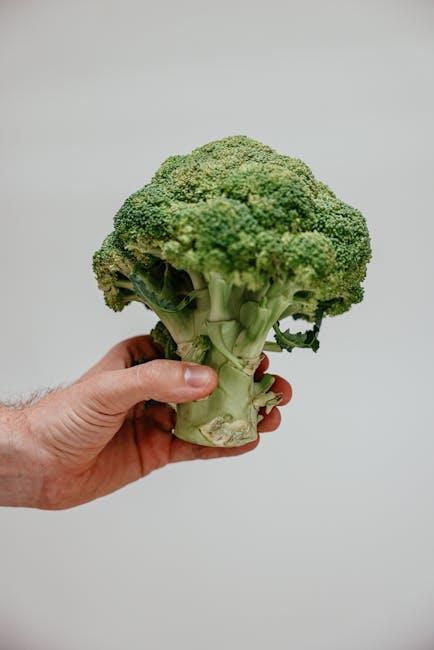In a world where fad diets and quick-fix solutions dominate the landscape of weight management, the quest for sustainable weight loss can often feel like navigating a labyrinth without a map. Yet, amid the cacophony of conflicting advice, a beacon of clarity emerges: the power of a balanced, mindful approach to eating. Imagine embarking on a journey where food becomes not just fuel, but a partner in your quest for health and well-being. This article delves into the art of sustainable weight loss through diet, offering insights and practical tips that honor your body’s needs while fostering a harmonious relationship with the foods you love. Whether you’re taking your first steps or seeking to refine your path, these strategies aim to guide you toward a healthier, more sustainable lifestyle.
Understanding Your Nutritional Needs
To embark on a journey towards sustainable weight loss, it’s crucial to recognize the unique nutritional needs of your body. Rather than adhering to a one-size-fits-all diet, consider focusing on a balanced intake of macronutrients that support your lifestyle and energy levels. Start by evaluating your daily activity level, metabolic rate, and any specific health considerations. This tailored approach can help ensure that you’re not only losing weight but also maintaining muscle mass and overall health.
- Carbohydrates: Opt for complex carbs like whole grains and legumes, which provide sustained energy and are rich in fiber.
- Proteins: Incorporate lean proteins such as chicken, fish, and plant-based options like beans and lentils to support muscle repair and growth.
- Fats: Don’t shy away from healthy fats found in avocados, nuts, and olive oil, which are essential for hormone regulation and satiety.
By understanding and aligning with your nutritional requirements, you can create a diet plan that not only facilitates weight loss but also enhances your overall well-being. Remember, moderation and balance are key, and listening to your body’s cues can guide you towards a more sustainable and healthful lifestyle.

Crafting a Balanced Meal Plan
Creating a meal plan that supports sustainable weight loss requires a harmonious blend of nutrients, variety, and satisfaction. Focus on incorporating a mix of macronutrients in each meal. Here are some elements to consider:
- Proteins: Opt for lean sources such as chicken, fish, tofu, or legumes. These help maintain muscle mass and keep you feeling full.
- Carbohydrates: Choose whole grains like quinoa, brown rice, and oats to provide energy and fiber.
- Fats: Incorporate healthy fats from avocados, nuts, and olive oil to support brain function and satiety.
- Vegetables: Aim for a colorful variety to ensure a wide range of vitamins and minerals.
Mindful Portion Sizes: Using smaller plates and being conscious of portion sizes can help in avoiding overeating. Listen to your body’s hunger cues and adjust portions accordingly.

Incorporating Mindful Eating Practices
One of the transformative ways to approach your dietary habits is by embracing the art of mindful eating. This practice encourages you to fully engage with your meals, leading to a deeper connection with the food you consume. Here are some ways to start:
- Slow Down: Take your time to chew each bite thoroughly. This not only aids digestion but also allows you to savor the flavors and textures.
- Listen to Your Body: Pay attention to hunger and fullness cues. Eat when you’re truly hungry and stop when you’re comfortably satisfied.
- Eliminate Distractions: Avoid eating in front of screens. Instead, focus on the meal and the experience of eating.
- Engage Your Senses: Notice the colors, smells, and flavors of your food. This sensory engagement can enhance your eating experience and satisfaction.
By cultivating these mindful eating habits, you can develop a healthier relationship with food, ultimately supporting your journey towards sustainable weight loss.

Exploring Plant-Based Alternatives
Transitioning to a plant-based diet can be an effective way to achieve sustainable weight loss while benefiting the planet. By embracing a variety of plant-based alternatives, you can create delicious and nutritious meals that keep you satisfied and energized. Here are some ideas to incorporate into your diet:
- Legumes and Pulses: These are excellent sources of protein and fiber, making them perfect for weight management. Consider adding lentils, chickpeas, and black beans to your meals.
- Whole Grains: Swap refined grains for whole grains like quinoa, brown rice, and barley. They provide essential nutrients and keep you full longer.
- Nuts and Seeds: Incorporate a variety of nuts and seeds for healthy fats and protein. Almonds, chia seeds, and flaxseeds can be great additions to your diet.
- Plant-Based Dairy Alternatives: Opt for almond, oat, or soy milk and yogurts to reduce saturated fats and cholesterol intake.
Experiment with these alternatives to discover flavors and textures that you enjoy. This not only supports weight loss but also encourages a more sustainable lifestyle.
To Wrap It Up
As we journey towards a healthier lifestyle, sustainable weight loss becomes not just a goal but a way of life. By embracing mindful eating habits, prioritizing whole foods, and listening to our bodies, we can cultivate a relationship with food that nourishes both body and soul. Remember, the path to lasting change is paved with patience, perseverance, and self-compassion. With each mindful choice, you not only transform your plate but also your life, ensuring that the changes you make today support a healthier, more balanced tomorrow. So, as you embark on this path, may you find joy in the journey and strength in the small victories that guide you toward a sustainable, healthier you.


































